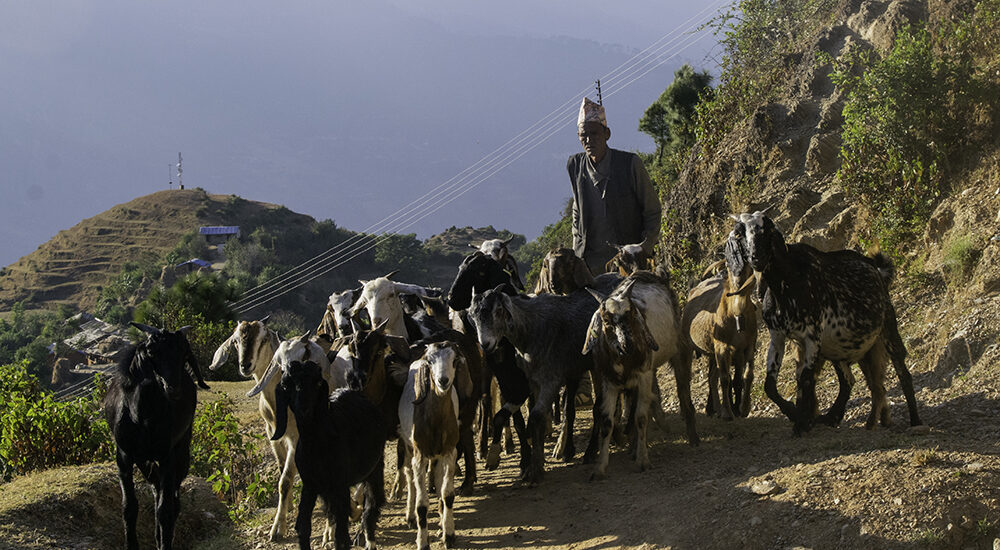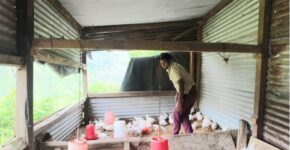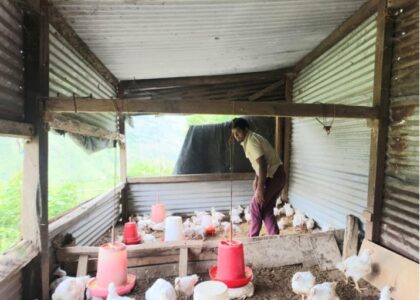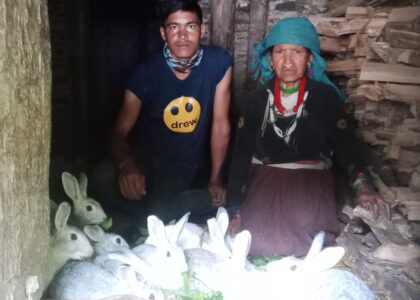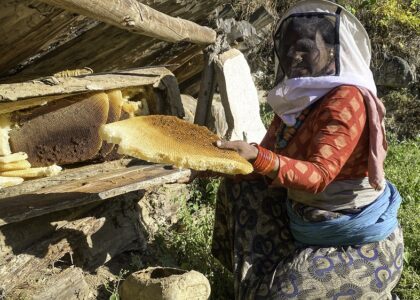Mangal Thapa (36 years) located in Thalara-1, Dagaji, Bajhang has a ‘Narugadi Multi-Purpose Agricultural Firm’. He has been operating commercial goat farms and currently has 32 goats.
He initially started with 10–15 goats. Those goats were sold at a good price. By keeping some parent goats, new goats were added. In this way, he made a goat-farming commercial.
Before taking up goat farming, he was working in Faiderabad, India. There, he mainly worked with wood and electricity. With the earnings he made from India, the expenses of his house were running. But suddenly, the work stopped after COVID-19. Then he was forced to come to Nepal.
After returning to Nepal, he decided to stay here and do some work. But he was not sure what to do. It was during this time that he came to know about the Sirjana project. Then, he was amazed to get training in something he wanted to do for business in his own place. He participated in commercial goat farming training in the village itself. He gained a lot of knowledge and skills related to goat farming with the help of the project; he also got support with hybrid goats and sheds. He then started a goat farming business.
He says, “There was good income from the goats that were put in at the beginning as there was enough grass around to graze and feed the goats.” As a result, he was inspired to expand his business by adding more goats. The number of goats gradually increased. He now has goats of advanced breeds such as Kharijat and Jamunapari.
He earns a good income from goatfarming, earning up to Rs. 2 lakhs in a year. It is easy to sell goats, but you have to be able to raise goats. The income from goat farming easily covers his children’s education and other household expenses. Along with the income, he is also satisfied with his work. “It is much better here than in India. I am very happy to do business in my own country, living with my family, he says.
He, who has a taste for new technology, says, “I have heard that sheep and goat farmers also do fish farming together because sheep and goat manure are considered good fish feed. In a modern shed, manure easily falls down underneath the shed into the fish pond, so that fish farming is done alongside the sheep and goats. I also saw this video on YouTube, and I recommended adopting this technique.”
Forced to return home due to COVID, he became a goat farmer (entrepreneur) from a simple laborer working in India. With the practical skills, training, and material support received from the Sirjana project, he became an entrepreneur in his village. He has built his identity around his inner interests. He is now eager to grow his business by learning new techniques.


